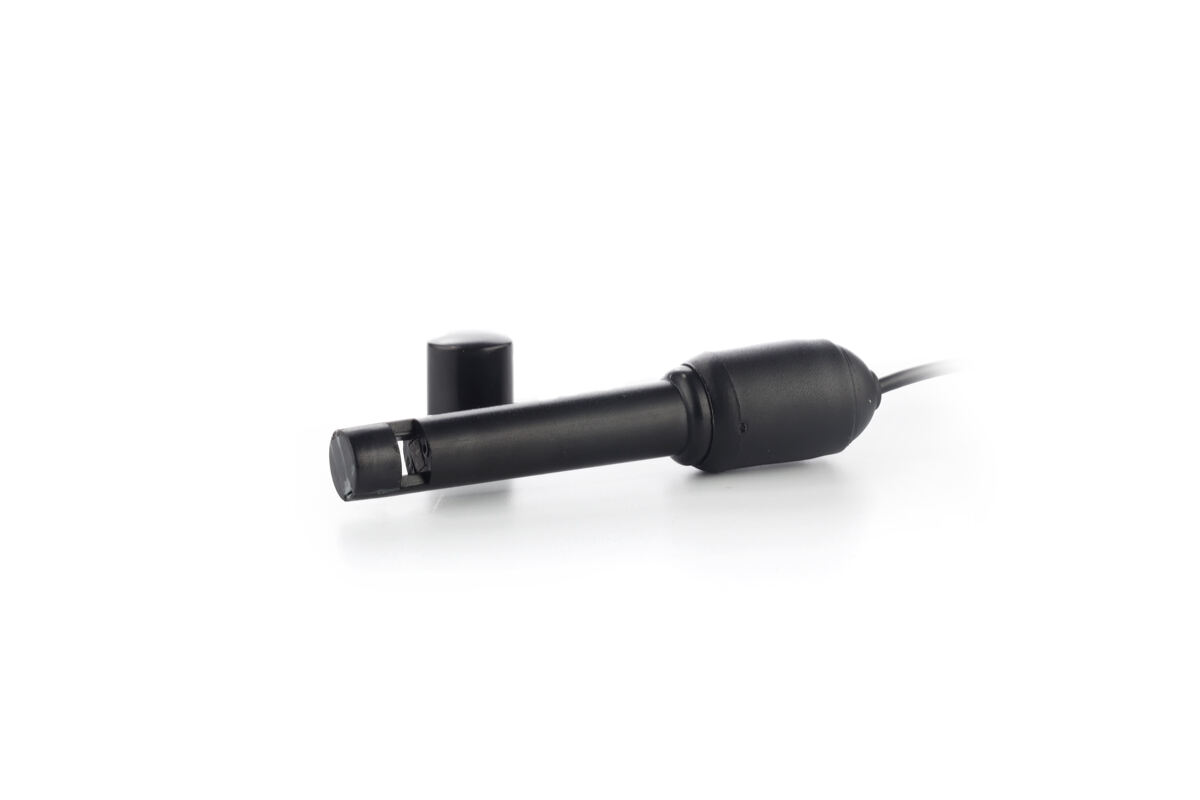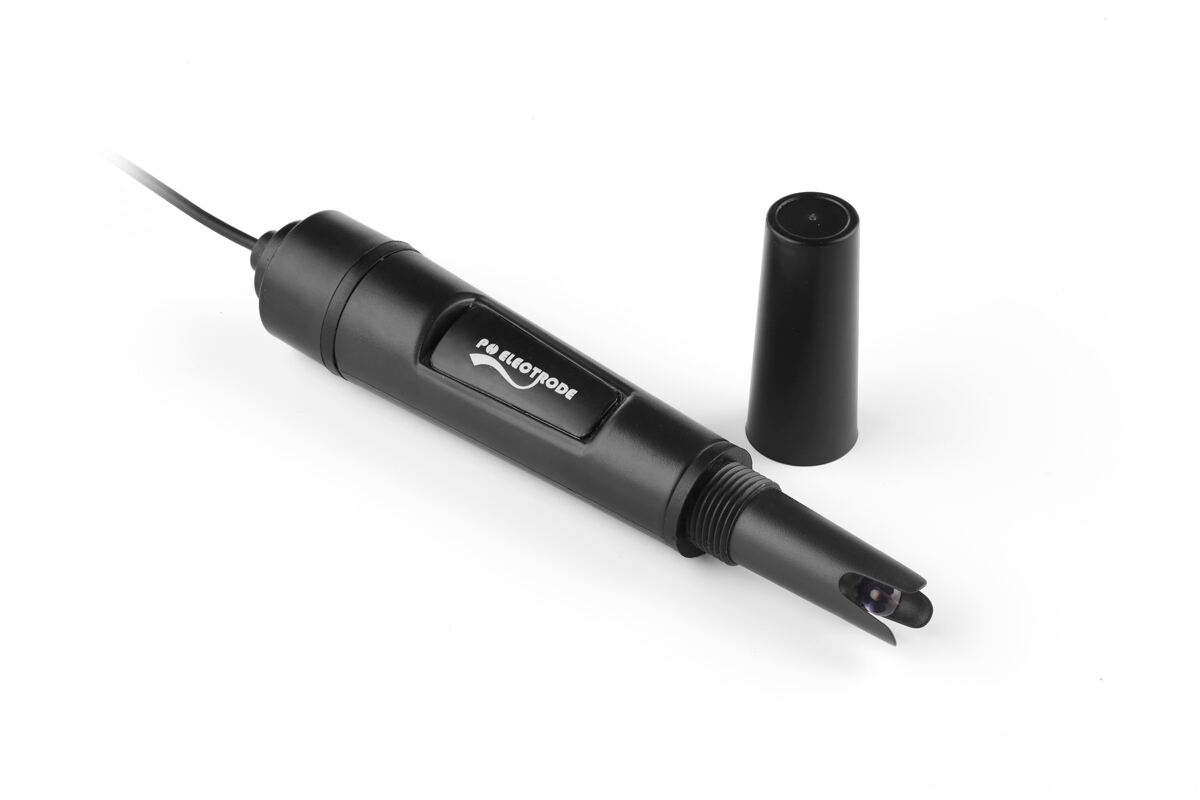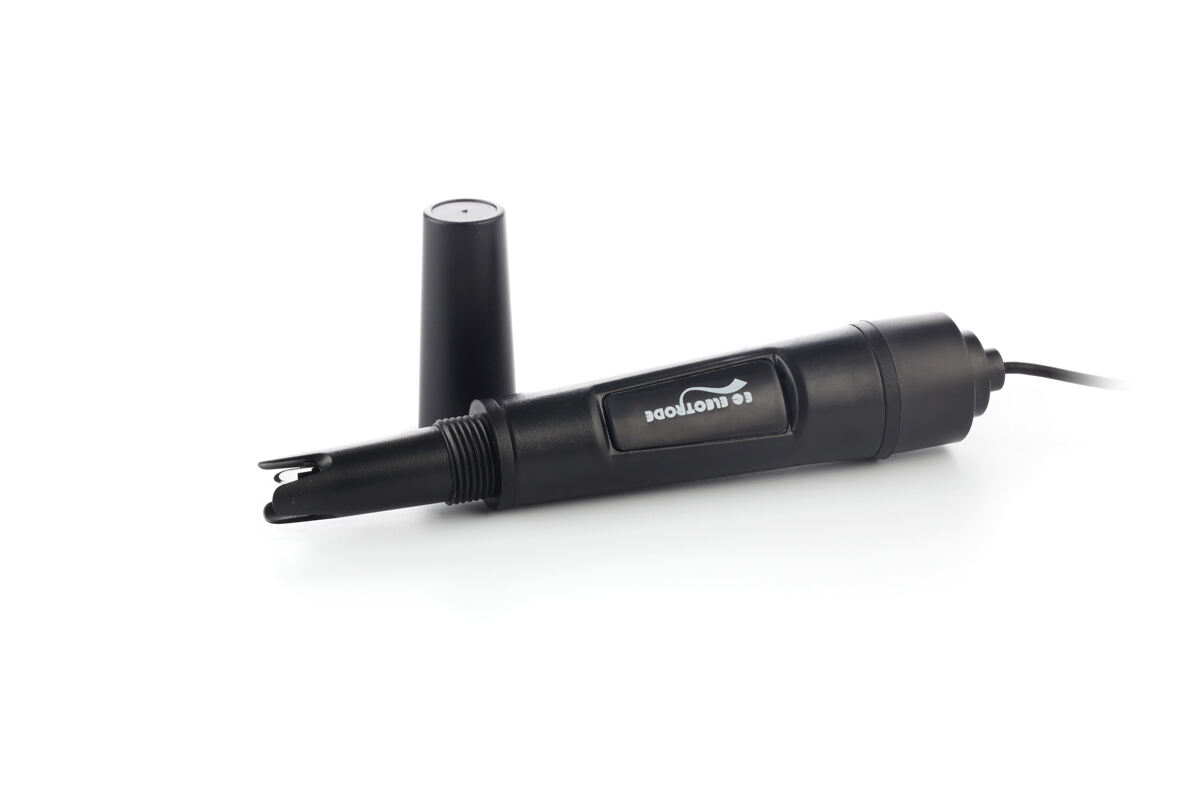elektrode brugt i pH-meter
Elektroden, der anvendes i pH-meter, er en sofistikeret måleenhed, som fungerer som den centrale komponent til præcis pH-bestemmelse. Denne specialiserede elektrode består af en glasmembran, der indeholder en buffervæske og en referenceelektrode, som samarbejder om at måle hydrogenionekoncentrationen i opløsninger. Glasmembranen er konstrueret med en unik sammensætning, som tillader hydrogenioner at skabe en potentialeforskel mellem dens indre og ydre overflader. Når den nedsænkes i en opløsning, genererer elektroden en elektrisk spænding, som er proportional med pH-værdien, og som herefter omdannes til en aflæsbar måling af pH-meterets elektronik. Moderne pH-elektroder indeholder funktioner til temperaturkompensation og avancerede materialer, som sikrer stabilitet og levetid. Disse elektroder fremstilles med præcise glasblæsningsteknikker og indeholder ofte indbyggede referenceforbindelser, som forhindrer forurening og sikrer præcise målinger. Teknologien bag disse elektroder er blevet videreudviklet og omfatter blandt andet gelfyldte referencer og dobbelte forbindelsesdesign, som beskytter mod prøveforurening. Anvendelsesområderne spænder over laboratorieforskning og kvalitetskontrol i produktionen til miljøovervågning og pædagogiske demonstrationer. Elektroderne er holdbare og pålidelige og er derfor uundværlige værktøjer i industrier som farmaceutisk produktion, fødevareindustrien, vandbehandling og kemisk produktion.


